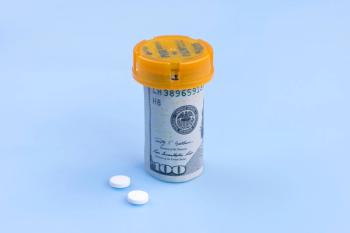
CBD: Key Legal and Regulatory Issues to Know
The cannabidiol (CBD) industry is undergoing tremendous growth. Pharmacists selling, or preparing to sell, CBD in their stores should stay up-to-date on recent developments in legal status.
In a session held during the Pharmacists Education on CBD & Cannabinoids Symposium on March 19, Dae Y. Lee, PharmD, Esq. CPBS, provided an update on what pharmacy owners and staff should know about hemp-containing products.
The Agriculture Improvement Act of 2018 (2018 Farm Bill) transformed the CBD industry by legalizing hemp cultivation in accordance with certain regulations. Under the law, hemp is effectively removed from the definition of marijuana in the Controlled Substances Act. The bill also established the US Department of Agriculture as the regulating body of hemp, while preserving the FDA’s authority to regulate products containing hemp and hemp derivatives.
However, on the state level, laws and regulation of hemp-derived CBD vary, and the legality of a CBD product is based on its form and marketing. Although some states allow access to hemp-derived CBD products, other states opposed by enacting laws that made possession illegal. However, Lee noted that many of these states have reversed this in recent months and there are no longer any states outright banning the use of CBD.
Still, certain states have imposed strict limitations. For example, Idaho restricts CBD products to those having no THC at all, despite the accepted threshold of less than 0.3%. Additionally, many states prohibit the sale of CBD in food, beverages, or as dietary supplements.
Marketing Claims
When the 2018 Farm Bill went into effect, the FDA expressed concern over the increase in CBD products being marketed with claims of therapeutic benefit without approval.
Under law, it is illegal to market hemp-derived CBD or THC products:
- for use in the diagnosis, cure, mitigation, treatment, or prevention of diseases without FDA approval;
- as or in dietary supplements;
- as or in a food product
The FDA has taken action against companies selling CBD products in violation of the Federal Food, Drug, and Cosmetic Act (FD&C) Act. Additionally, the Federal Trade Commission (FTC) began to crack down on deceptive claims in CBD product marketing. In December 2020, for the first time, the FTC imposed monetary sanction on CBD companies, as well as corporate officers, for marketing unsubstantiated health claims. There have been a series of lawsuits filed against CBD companies since then that have mimicked allegations raised in FDA warning letters.
As a result of this increased scrutiny, pharmacy owners and pharmacists must be especially cognizant of the products they are offering in their stores, as well as how they market those products.
CBD Labeling Requirements
When it comes to labeling requirements, certain states have rules for specific products. For example, in some states, the label must include a scannable code that provides a link to specific information about the product.
Lee noted that the variation in labeling requirements has created a challenge due the lack of uniformity.
Non-FDA Approved CBD Products
When considering selling non-FDA approved CBD products in the pharmacy, being able to identify what constitutes a quality product is essential.
Pharmacy owners should look the following when selecting CBD inventory for their stores:
- A Certificate of Analysis, which shows an independent laboratory’s assessment of the product’s potency and the presence of contaminants.
- A Hemp Authority seal, which indicates that the product is legal, and the manufacturer is adhering to quality standards.
Legal Updates
Currently, there are several recent developments in the legal space:
- The “Hemp and Hemp-Derived CBD Consumer Protection and Market Stabilization Act” (H.R. 841) was re-introduced to the House of Representatives in February. If passed, the law would allow CBD and other hemp-derived products to be lawfully used in dietary supplement under the Federal Food, Drug and Cosmetic Act.
- Under the instruction of the Biden administration, the FDA withdrew its Cannabidiol Enforcement Policy.
- CBD is not included in the 503A bulks list for compounding.
Reference
- Lee Dae Y. Current legal status: Federal and state and province including the 2016 & 2018 hemp bills. Pharmacists Education on CBD & Cannabinoids Symposium. March 19-20, 2021; virtual.
https://pheedloop.com/CBDsymposium/virtual/?page=sessions§ion=SES5T4YZ49QFD0UBK
Newsletter
Pharmacy practice is always changing. Stay ahead of the curve with the Drug Topics newsletter and get the latest drug information, industry trends, and patient care tips.























